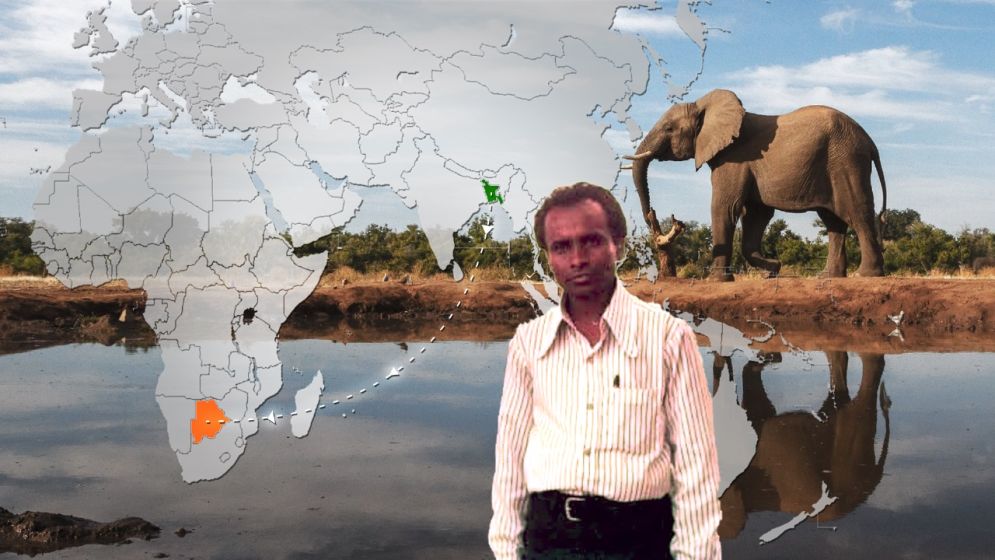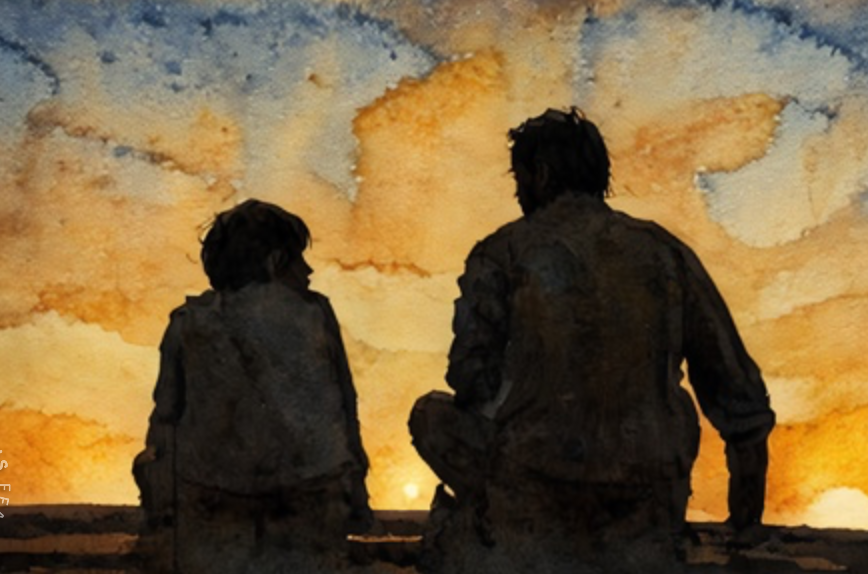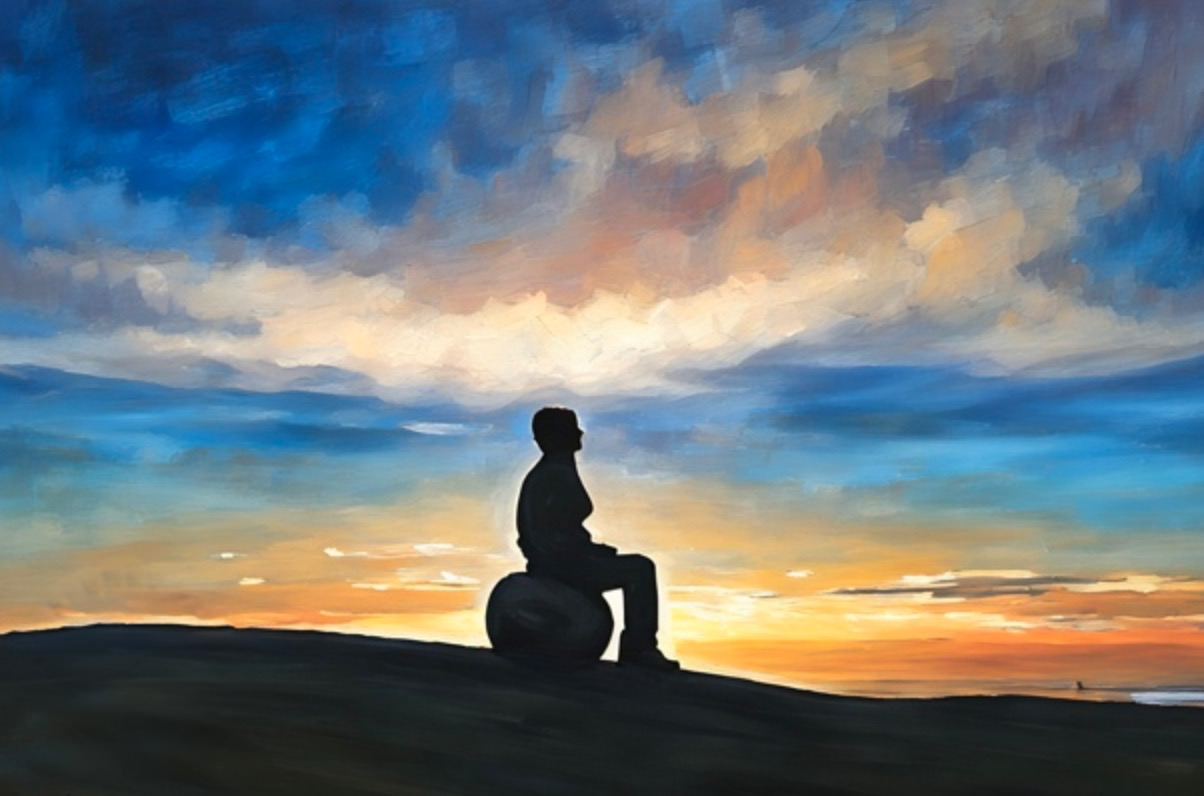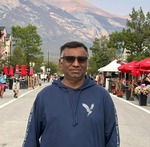The unlikely “extraordinary” journey of my father....

My father–Ali Akbar Khan– the eldest and most pampered son in the family, was the quintessential homebody.
He was, in every sense, the polar opposite of adventurous—quiet, reserved, the kind of man who would rather sit by the window than go out into the world.
When I was in eighth grade, and my younger siblings were still in the throes of seventh and fourth grades, we lived in a government house in Dhaka.
It was there, in that small, familiar world, that our home-loving, timid father made an astonishing decision: he would leave us behind and embark on a journey to—of all places—Africa.
Not just any part of Africa, mind you, but the kind of place that seemed to exist on the farthest edge of the world, a place shrouded in mystery and danger. Botswana.
A country so remote that even our relatives and neighbors couldn’t pinpoint it on a map. The capital, Gaborone, lay at the intersection of the golden Kalahari Desert and the lush Okavango Delta, a landscape of extremes that seemed to defy any notion of comfort.
He worked as a government officer, holding a decent position, but in those days, the pay was a far cry from the stable middle class that one might expect from a civil servant today.
My mother, too, taught at a local school, but even with both of them working, we were a family stretched thin.
My father was convinced, though, that his sons had no future in Bangladesh. The only hope for us, he believed, was to get us out of the country, to send us abroad.
But the funds necessary for such a leap? They were simply out of reach on a government salary. Sure, one could make a fortune by bending the rules, by taking bribes.
But that wasn’t my father’s way.

Sense of responsibility
My father was too conservative, too lacking in the adventurous spirit required to navigate such morally grey waters.
It wasn’t just about courage—it was about a worldview that was entirely foreign to him.
Even without that innate adventurous spirit or the courage to venture into the unknown, my father’s overwhelming sense of paternal responsibility, his deep love for us, and his unshakeable belief in securing our futures gave him the strength to face his fears.
It was this sense of duty, more than any desire for adventure, that propelled him forward. And so, we sent this quiet, home-loving man off on a British Airways flight from Dhaka’s Tejgaon Airport.
In 1980, leaving us behind, he took a leave of absence from his government post and began a journey with four connecting flights that eventually led him to Gaborone, the capital of Botswana.
His new job was with the UNDP. At that time, Botswana had exactly one Bengali: Mr. Ganguly, a Kolkata native.
Later, Ahmed Munir—son of the martyred intellectual Munir Chowdhury—joined him, and together, these three men represented the entire Bengali community in the country.
He left in 1980 and didn’t return until 1998, by which time all of us had settled abroad for our studies.
He would visit occasionally, and we’d go to see him during holidays or breaks after exams. By then, he had relocated to Muscat, Oman, where he took charge of the Audit and Accounts department under Sultan Qaboos.
When he came back to Bangladesh, after nearly two decades, he found the house he had left so full of family now empty. My mother and father were alone.
For 26 years, they lived this way—alone, with all of us scattered across different parts of the world.
They would visit us in America every couple of years, though the journey was not easy. The long flight from Dhaka to the U.S. was physically grueling, but my father, with his quiet determination, made these arduous trips seem effortless.

The quiet yet resolute one
For three months after my SSC exams, I wandered aimlessly around the city, drifting through days and nights without much direction.
My paternal grandfather had lost his sight at a relatively young age due to glaucoma, forcing him into an early, voluntary retirement from his government job. After that, the weight of supporting the family fell squarely on my father’s shoulders.
Despite this responsibility, he completed his degree and, in 1964, joined the government’s Accountant General’s office. By the time he was deputed to the UNDP in 1980, he had risen to the role of Deputy Accountant General.
In the fall of 2023, something unexpected happened: for the first time in his life, my father fell seriously ill and was hospitalized.
He was bedridden for over a month and a half. Yet, on the very day I left to return to America, he surprised us all by getting up.
Without the help of a walker or wheelchair, he walked down to the lower portico to see me off. That was the last time I saw him.
He came to America for the final time in December 2023 to stay with my brother. There, he seemed happy and in good health, enjoying life.
He had developed a fondness for Mediterranean and Arab cuisine, and my brother’s Detroit suburb had a thriving market for it. One afternoon, after settling down for lunch with his favorite dishes, he suddenly collapsed. His heart stopped.
That morning, just hours before, he had called me around 10 a.m. We chatted briefly, and then I hung up, as casually as we always did. Patients were waiting.
That day was February 1st, 2024. The man who had been born into a respected Khan family in Binodpur, a village in the Bikrampur region of Dhaka, was buried in White Chapel Cemetery in Troy, Michigan.
It was the end of a journey. A journey, I’d say, that reached its conclusion with success—he achieved what he set out to do.
—
Rumi Ahmed is a Texas-based Physician and writer

